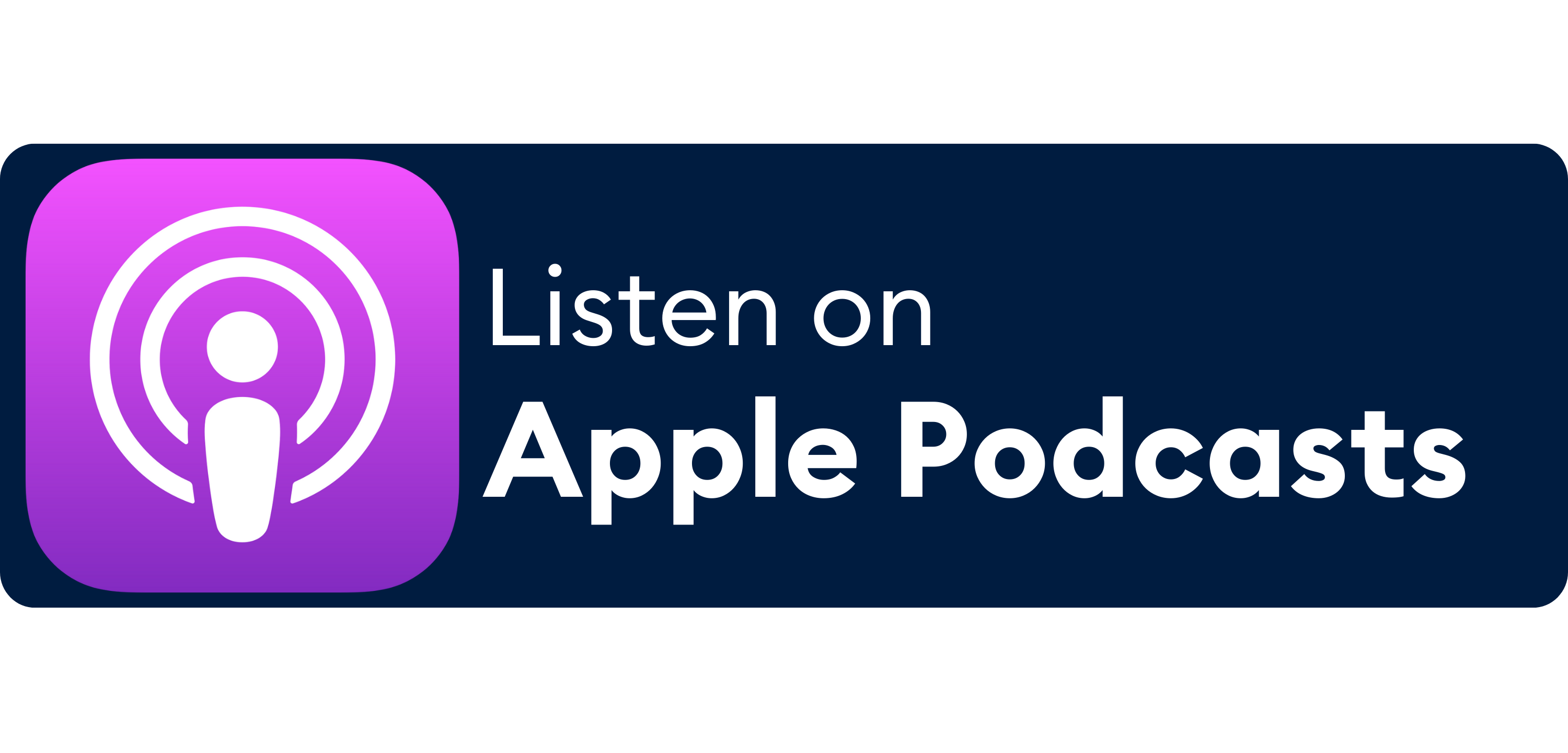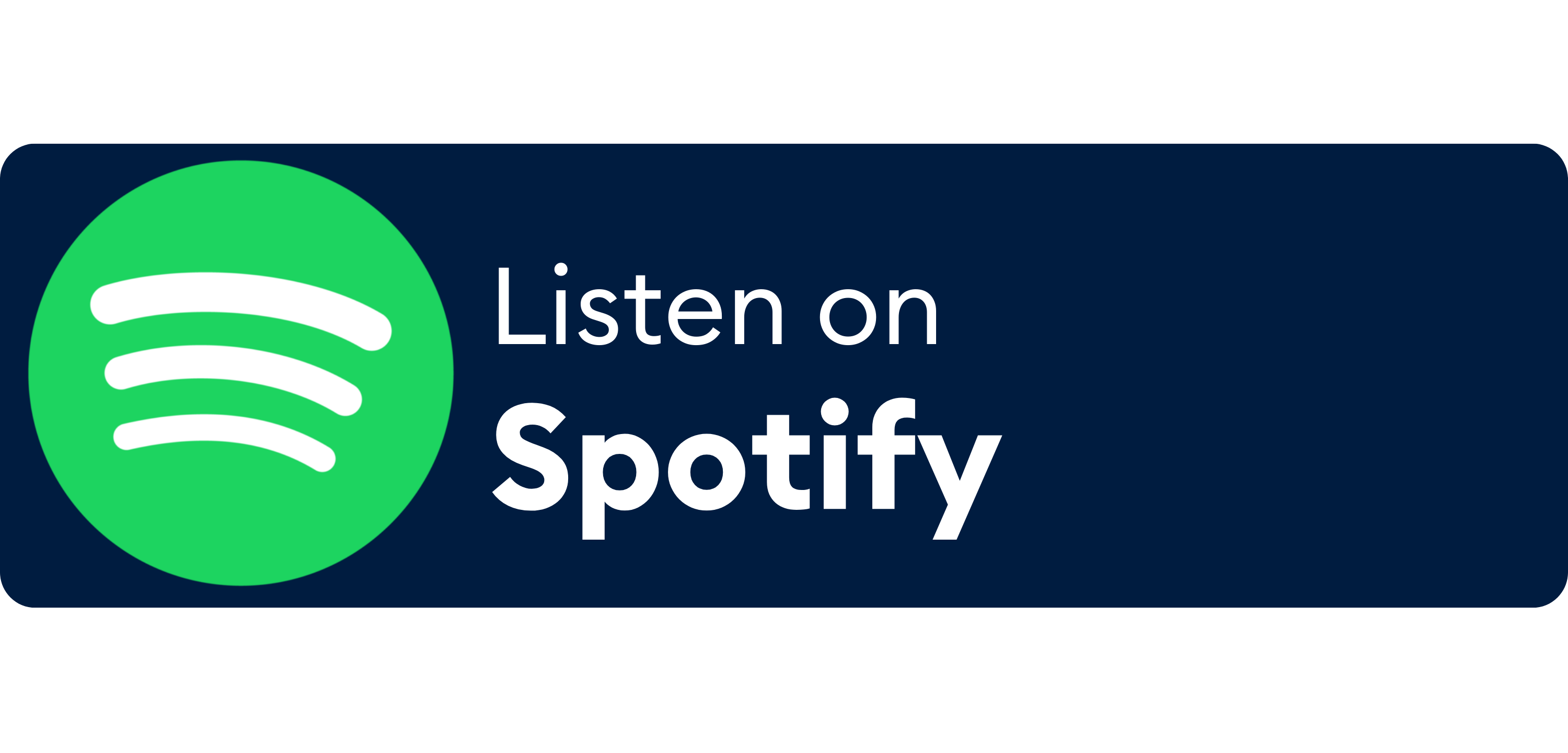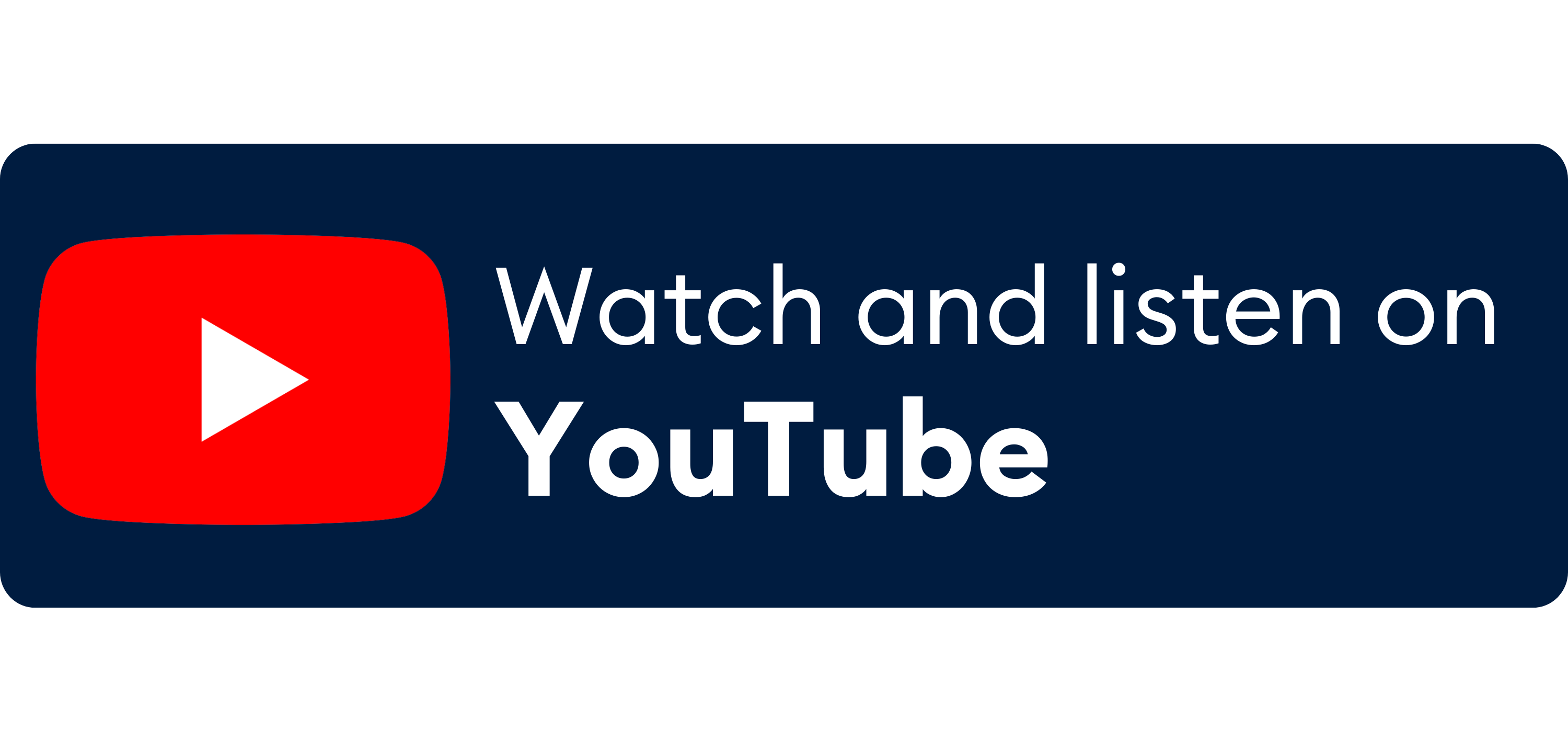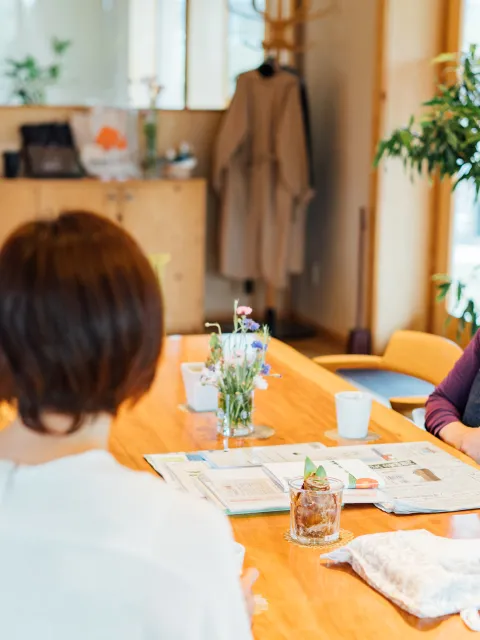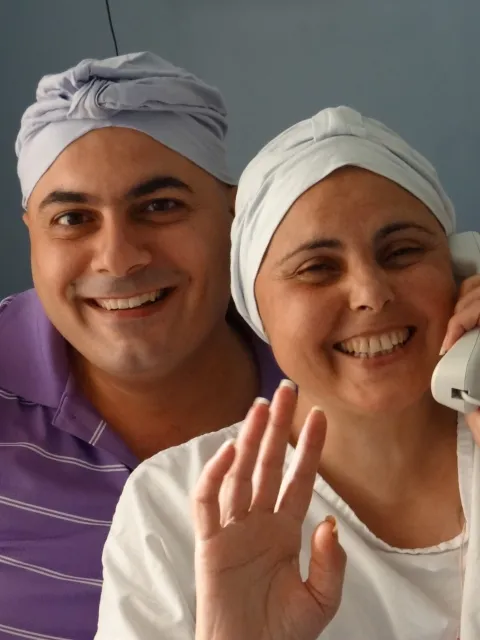Podcast "Let's Talk Cancer" – Discover stories of resilience and innovation in cancer care
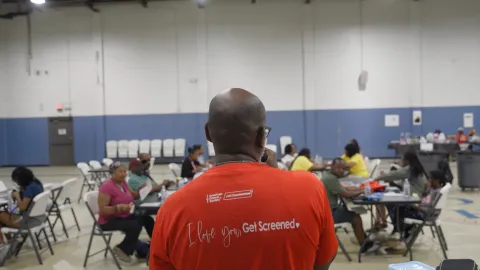
In this episode of Let’s Talk Cancer, discover the making of a mini film series that highlights experiences with cancer from patients, their loved ones, caregivers, medical professionals and volunteers.
The series titled 'Rewriting Cancer' was produced for UICC by BBC StoryWorks Commercial Productions. It features 27 short films from across the world, grouped into three chapters: Changing the odds, Changing the outcome, and Changing the experience. Each chapter focuses on different aspects of cancer care and patient perspectives. The series also aims to dispel myths and showcase advancements and innovative approaches in cancer prevention, diagnosis, treatment, and supportive care.
This series aligns with the new World Cancer Day campaign ‘United by Uniquewhich advocates for people-centred care, an approach that improves both outcomes and quality of life. World Cancer Day is marked every 4 February.
Joining UICC's CEO Cary Adams are Gemma Jennings, Vice President of the unit at BBC StoryWorks that produced the series, as well as James Waddington from United States who features in the film produced for the American Cancer Society as a patient advocating for early screening. Together, they explore the making of the series, the impact it aims to have, and the personal stories that bring it to life.
Watch the films in the 'Rewriting Cancer' series
Listen on: Spotify | Stitcher | Apple Podcasts | Amazon Music | Audible | Deezer
Podcast transcript
Cary Adams: Welcome to another episode of Let's Talk Cancer, the podcast where we delve into the latest advancements, stories and insights in cancer care. People centred care is the focus of the New World Cancer Day campaign, united by unique. And today in Let's Talk Cancer, we are focusing on a series of short, five minute branded films produced for use by BBC StoryWorks Commercial Productions entitled Rewriting Cancer, an initiative that highlights people's experiences with cancer around the world, patients, their loved ones, caregivers, medical professionals and volunteers. While the Rewriting Cancer series is anchored in people's experiences, it also aims to dispel myths and showcase advancements and innovative approaches to cancer prevention, diagnostics, treatment, and supportive care. It features 27 short films from across the globe grouped into three chapters changing the odds, changing the outcome, and changing the experience, each focusing on different aspects of cancer care and patient experiences. With us today is Gemma Jennings, Vice President of the unit at BBC StoryWorks that produced the series, as well as James Waddington from the United States, who features in the film produced for the American Cancer Society as a patient advocating for early screening. Together, we'll explore the making of the series, the impact it aims to have, and the personal stories that bring it to life. Gemma James, thank you for joining us today, Gemma. How did the Rewriting Cancer series come about and what inspired your team to develop such an amazing project?
Gemma Jennings: Everyone has a personal story about cancer and I don't need to tell you that, Cary. Estimates indicate 1 in 4 people worldwide will develop cancer in their lifetime. That means that it's a topic global audiences on bbc.com, regardless of geography, demographic, age, race, gender or economic background will have an interest in. A BBC StoryWorks we work with global partners to create original commercial content for them on the issues that matter, and we were struck from our earliest conversations with experts in the field, with UICC, with the extent to which knowledge around this disease and its treatments still remains pretty blurry. We actually, in the early phases, spoke to the deputy clinical director at the Francis Crick Institute, and he told us that one of the biggest problems that he faces as a clinician is that patient understanding is still very rudimentary and that people don't really know what cancer is. If that's a problem for doctors, if that's a problem for the cancer care ecosystem, could we help organisations that are working in cancer care to tell more informative, more accessible, more human centric stories? Well, we thought so. And luckily for us, you and the team at the UICC agreed with us.
Cary Adams: Well that's super. James, perhaps you could share a bit about your own journey, your own story, and what led you to participate in the series with Jemma? Sure.
James Waddington: Well, I mean, I'm the basic guy. I grew up in Philadelphia, Pennsylvania. I'm an educator, a family man. I have two kids. Back in 2005, my daughter was born four days later. My dad was diagnosed with cancer. Four months later, he was gone. So you fast forward 14 years. I was diagnosed by my doctor in a follow up routine follow ups for my diabetes and those with high PSA level told me to go to urologist. I was unable to because of the Covid lockdown. So in August of 2020 I was diagnosed with cancer. Four months later I had surgery in, the cancer was gone. My dad had four months, I had four months. It was a total different four months. And I totally believe that's because of early detection. So from that point on, I started just talking to people about the importance of early detection and how early detection can save lives, especially with prostate cancer. I joined up with the American Cancer Society with a program called determination, which is an endurance program. I thought I would run the Broad Street Run here in Philadelphia, raise $500 and be done with it. And that was not to be the case because of the people at the American Cancer Society. Continue to encourage me and give me an opportunity to tell my story. So we did a couple of news reports. We did a national campaign, and then they said, hey, BBC Film Works and UIC is doing a series that we think you might be good for, and the rest is history. The camera crew came, followed me, put together a story that literally made me cry as I watched it the first time, and maybe the second time too. I'm not sure, but it just has been an amazing journey of just trying to tell the story and get people to understand the need for early detection, not just with prostate cancer, but any type of cancer that you may be susceptible to. Just get it checked early and you have a fighting chance.
Cary Adams: Well, before I come back to James, who was on the other side of the camera. Gemma, how many films did you expect to make at the beginning? How many did you finish?
Gemma Jennings: Yeah. Gosh. So I think we expected to make, um, you know, around sort of 12 to 18. We never really know. We had three chapters, um, that, that we knew wanted to cover the whole spectrum of cancer care. So it was quite an ambitious project. But until you start to sort of see what's out there and the different stories, you really don't know. And we ended up actually with 27 pieces of content. Some of those were films, there were articles in there and some animated pieces as well. So yeah, it became a more ambitious project as we went along, because there was so much to say about this topic and so many great stories to bring to screen.
Cary Adams: So, James, you were the other side of the camera then. What was it like being filmed for a whole day? Did you feel comfortable? Um, how did they make you feel?
James Waddington: I laugh all the time. The people at the American Cancer Society who I work with here, they're the only folks I know can take a cancer survivor and make them feel like a rock star. So it was interesting just, you know, the care, the compassion, just making sure everything went smoothly. They came to my school, they recorded, they went to my church, recorded bingo night we had. And it was just interesting. And for me, the whole rewriting cancer title hits me because for my cancer experience, either people die from cancer or people survive. But this whole being able to survive and then tell the story and help others is not the experience that I'm used to in my community or my family. You know, hey, someone had cancer. You know, we move on. Either they survived it or they died. But the whole idea of getting out and talking to others and spreading the word is the rewriting the story for me. And I'm appreciative of that, because for me, when I did my surgery, the hospital always kept talking about the psychological assistance they can provide after the surgery, and I never did that. But the work I'm doing now, it helps me not question why I got cancer. My question is, what am I to do with this now? So, you know, things like this is my reason why I got cancer. Because I didn't get cancer to be sick. I didn't get cancer to die. I got cancer to help others.
Cary Adams: James, your story I've heard in other parts of the world where it becomes a almost a change of life, it creates a new purpose, a new ambition. Is that how you feel?
James Waddington: Yes. You know, like I said, I survived this for a reason. And you know, the side effects, the after effects of the surgery. I'll take them all because I'm still here breathing every day. So people at the Cancer Society here, they teased me because they said, James, whenever we ask you, say yes. And I say, because if I say no, I think I'm saying no to the purpose. I'm still here. So, you know, that helps keep me going. If somebody say, can you talk about cancer, fine, because I'd rather be here to talk about cancer than my family's talking about what cancer did to me.
Cary Adams: Well that's tremendous. Gemma. The series places a strong focus on addressing disparities in cancer. I mean, equities is something that UIC has been really pushing for a long, long time that, you know, we need to bridge gaps between communities, between countries around the world. Can you share some examples of how you think the initiatives that you've filmed the series, what sort of impact they can make?
Gemma Jennings: Yeah, absolutely. Well, we honestly learned so much about what is happening in cancer care. There was a story that we produced in Zambia for MD Anderson Cancer Centre, and that was all about cervical cancer, And this was interesting because cervical cancer is the number one cancer among women in Zambia, and it is the leading cause of cancer related deaths. What MD Anderson is doing is helping to train doctors and nurses in the country to be able to screen for for cervical cancer and then also treat pre-cancerous cells before they turn into cancer. So that was interesting from from one perspective. But there was also just a huge amount of work that we were able to capture behind the scenes. That's really more around prevention and education. How can we get more women screened? How can we get their children vaccinated against HPV? Elsewhere, we actually produced two films in Brazil, one for AstraZeneca, which featured their inspire program, and that focuses on prevention, screening, diagnosis of respiratory disease to promote specifically lung health equity and in areas where there is limited access. And the other in Brazil was for Beijing, who are increasing access to novel targeted lymphoma treatment.
Gemma Jennings: Just a couple of examples there really, of the real range of types of cancer and intervention from screening to to treatment to education that we were able to capture. And of course, you know, as we've heard from James, the focus of the film that we produced for the American Cancer Society was early screening for prostate cancer. And I just I have to say that one really affected me. You know, my my dad was diagnosed with prostate cancer, and luckily he did also like you, James, catch it super early. But that was luck really, because he fell off his bike and he had to be treated for some injuries and was able to sort of mention it to his doctor whilst he was there, but it really it could have been a very different story. And patient advocates are just so important in getting the message out. And Cary, you'll know that we've seen recently with Sir Chris Hoy in the in the UK and I'm sure working in this field, you very quickly realise that everyone has a story to tell.
Cary Adams: Everyone is unique and you know we're heading towards World Cancer Day. The new theme is United by Unique. We all have a unique story, but we're united in our in our attempt to reduce the burden of cancer globally and to save more lives. James, you have the privilege of working with the American Cancer Society. I've worked with them for many years. They do some great work addressing disparities in in a country in the US, which is a massive country anyway. And do you think that your story has helped to highlight the challenges that there are with, for example, the black male population on prostate cancer, availability of screening, things like that? Has it helped?
James Waddington: I think so, I hope so. I think we know when we look at cancer, it's horrible no matter where you are. But when you hear the voices, the stories, if the voice you can connect with, I think you're more serious about it. So I often ask, you know, why me? But I'm your average guy, I really do, you know, I'm no superstar. I'm no whatever. I get a chance to talk to people and they say, average guy just like me. You know, a lot of men. For me, my wife was the catalyst of me going to the doctor. That's the case for a lot of African American men. You know, the loved ones we have push us towards the doctor. Um, One of the things I talk about in my speeches is we talk about a lot of crazy things in the barbershop. Why can't we start talking about our health more often and prostate health in general? It shouldn't be taboo. And we can talk about all the nonsense. And for me, it's been funny because I have to live the walk. So I say, let's do this, let's do this. And then maybe two months ago, there was a gentleman at church. He comes up to me, James, and he pulls out his phone and he shows me an illustration of a prostate treatment he's going through.
James Waddington: And I'm like, please, it was in my face. You know, I don't want to say what the picture was, but you can only imagine. So I'm like, okay, but I know if I'm saying, gentlemen, we need to talk about this. We need to be serious about it. Those hard conversations are going to come up. So that's been the exciting part for me, just hearing other people's stories. And even though my story is a quote unquote prostate cancer story, my dad died from lung cancer. One of my closest aunts died from pancreatic cancer. One of the things that motivate me to run with the team determination is my aunt, who warned me that my dad wasn't feeling well. She was diagnosed with breast cancer. So, you know, cancer is cancer. Cancer is horrible. So I just try to see how I can, you know, reach the primarily the African-American community. I try to get to the church community and just spread the word to folks at the school I teach in is 74% Hispanic. So I've been working to get Hispanic literature on cancer awareness so we can have that in the building. So, you know, if you don't see the posters in English and understand them in your native language, but, you know, we have to get screened no matter what the language.
Cary Adams: I'm going to go off pieced here, but I'll tell you a story. James. So my son rang me. He's 29, going on 30 about five, six years ago he rang me. He said, dad, I think I've got a lump in my testicle. And I said, okay, I think you should go to a doctor straight away, get it checked out. Because he was young, you know, testicular cancer in young men in their early 20s is, you know, it's pretty common. Um, so he went there and he rang me up when they got results. So he did the scan. They said, oh, it's a cyst. It's nothing to worry about. I'm okay. And then two days later he posted the scan of his testicle on Instagram and he wrote, he said to all my male friends, if you get a lump in your testicle, get it checked. I did, and I thought, what a powerful thing to do. What a powerful thing to do. You know, not many people put an image of their test. Well, it was a scan, obviously a testicle. But yeah, it's a similar thing, though, isn't it? It's something that we need to talk about. We can't just run away from it. We've got to talk about it. And where is the barber shop or somewhere? It doesn't.
James Waddington: Matter. And I appreciate that story. That helps me because that's that's the results we want.
Cary Adams: It is it is. We want people to break down those barriers of discussion on a subject which is critical to all of us. Absolutely critical. Right, Gemma. Each each chapter of the series, which is, I think, changing the odds, changing the outcome, changing the experience highlights a different aspect of cancer care. Could you walk us through what each chapter focuses on and and why you think audience will engage with each of those those narratives?
Gemma Jennings: Yeah. Well, first of all, Cary, all credit to your team because they were really amazing in how they helped us and patient, I should say, how they helped us think about the whole cancer continuum. And so we tried to design the series from the very beginning, as a journey that would speak to audiences who might be at different stages of their own experience in cancer, be that personal or the experience of a loved one. So in changing the odds, we asked, how can cancer instances be reduced or addressed through prevention initiatives, better screening, early detection and the stories in that chapter? Consider lifestyle environment vaccinations as well as innovations in detection. And of course, as we've been talking about so much today, the impact of early screening in changing the outcome, the stories aim to highlight how advances in treatment and monitoring are really improving outcomes. So we considered topics like personalised medicine or treatment accessibility improvements in hard to reach areas, new technologies including AI immunotherapies and how data plays a really important part in treatment, as well as considering health equity, and what happens when patients are empowered and informed to make their own decisions about the care that they're receiving. And then in the final chapter, changing the experience, the stories that we brought to screen really aim to spotlight what it is like in 2024 to live with cancer. So we covered stories of mental health, children in cancer, women in cancer, caregivers, physicians, the people also coping with the stress of cancer care. And actually what happens, you know, life beyond cancer. What is it like to survive and what support is there for end of life care? And the aim throughout was to produce something that the audience could really recognise as being inclusive, whilst highly personal, highly relevant to to their experiences. And we know that audiences engage when they're able to make that emotional connection and see their experiences reflected in the series. And that's why we chose to be so ambitious, really, and to cover that whole continuum of cancer care. Well, you.
Cary Adams: Certainly achieved that. It's fantastic. James. Um, beyond your own film? Other films that you've watched from the series? Are there any that particularly touched you or resonated that you have used? Or maybe you thought through and it's given you a different perspective?
James Waddington: For me, I think one of the biggest things that impacted me with the series is when you go through the listing of the films, just the diversity and seeing the various stories of how cancer is affecting folks around the world age, sex, race, it doesn't matter. You know, so that's the thing I think I take away from this the most is is just this is not a person disease. This is hitting everybody everywhere. And, you know, we're united in the fight. And something that happens in Africa can affect what happens here in America. So it's just so important that to see all the stories. One of the interesting things is when this first came out, I was so focussed on sharing my episode on social media, but then I'm like, that's selfish because there's 26 other great stories out there. So I shared the whole series and, you know, that's my goal is before the end of the year to get through each and every story and really try to connect with it, because each of the phases that the series are touches on is so important. So that's the biggest takeaway is this is a universal fight. You know, no one story is more important than the other. They all come together to tell the major story.
Cary Adams: Gemma, you've clearly had an impact on James and I know my team are delighted by the output. How do you want audience to respond to rewriting cancer?
Gemma Jennings: Well, Cary, the series was launched in September 2024, obviously to coincide with the World Cancer Congress. So we actually we already have a pretty good idea of how the audience is responding. And I'm personally thrilled with with what we're seeing. The series has got such strong global interest. Actually, countries that span five continents account for the highest video views and traffic to the website from Asia, North and South America, the Middle East and more. And so yeah, just absolutely delighted that it's resonated with the diverse audience that it was intended for. What is more than that is that it's already ranking in BBC StoryWorks top five most engaging branded series ever, with well over one third of audiences who see posts about the series then going on to engage with it on social media. So that's things like likes and comments and shares or saving it. And another great indicator that that's really exciting to us is the completion rates. The series has the third highest completion rates across all series we've ever made within BBC StoryWorks, and that tells us that audiences are gripped by this topic. They're driven to watch each film through to the end, and let's hope that that means that they've found something new or or memorable or meaningful in the stories that they've consumed. This is for us. It's a great start, but really it is just the beginning. We've got a lot more promotion planned. We really hope that rewriting cancer can positively impact as many people as possible. And just a special thank you, really, from from me to the whole UIC community who've just come together to, to help us reach audiences with this very special project.
Cary Adams: Well, I hope it continues to have an impact globally. James, I think Gemma just confirmed that you are a rock star. There you go. You're in the top five of BBC StoryWorks. You're there. You're there. Okay, James, reflecting on your experience with the series. Any last messages for the viewers to take away for me?
James Waddington: First, I just want to thank you guys. Gemma you and UICC. This has been life changing and it's been amazing. I know for me the series that this film that I was in, the way it ended pretty much sums up, you know what this means to me. It was me, my wife, my son and my daughter, you know, and my son's laughter taking us out. And for me, that's what it's all about. I want to be here to see their kids and possibly their kids kids. And, you know, I want to have this legacy of, you know, grandad, dad or whatever it did something to help change the world in a positive way. So this has been so amazing for me to be able to do that. I have a cousin who teases me. You need to stop being on the news. I said, I'm on the news for something positive. So, you know, we have other relatives who may not be able to say that. So, you know, it's just been exciting. I think for other survivors or people who are impacted by cancer, just look at the stories and realise that you're not alone. There's a lot of people dealing with a lot of things similar to you, and we can make it. I mean, we can make it as long as we're on this side of the dirt, we still have a fighting chance.
Cary Adams: Well, James, I'm I'm delighted I'm on this side of the dirt with you, James. Thank you very much indeed. Gemma will bound to catch up with again. Thank you very much for your help, Gemma. Talk to you soon. Thank you for listening to this episode of Let's Talk Cancer. Please head to Uic's YouTube channel and view all the films in the Rewriting Cancer Series playlist, or find the series online at Rewriting cancer.com. Please do leave us a rating or reach out for any questions and comments.
Last update
Friday 17 January 2025